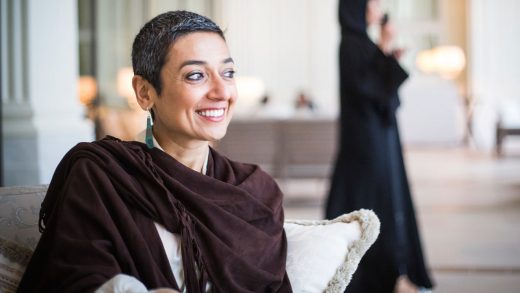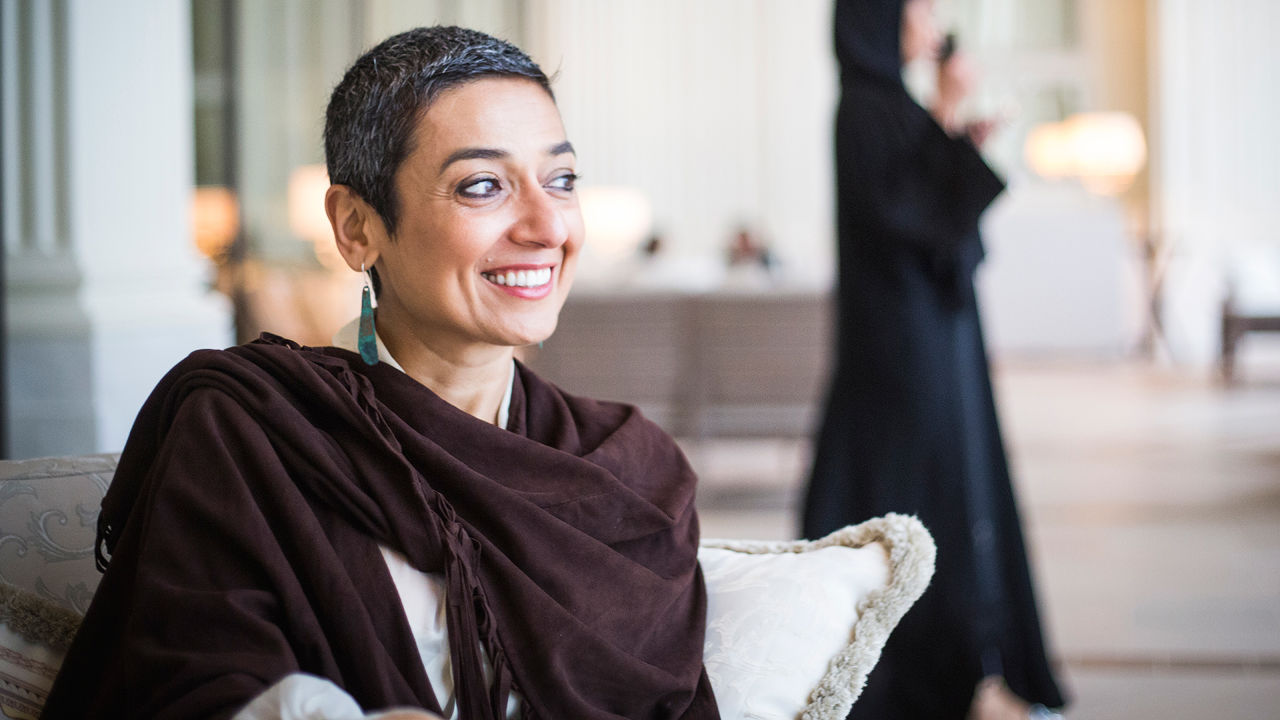Zainab Salbi And The Talk Show That’s A Voice Of Change In The Middle East
When Iraq-born activist Zainab Salbi launched her TV talk show last fall with TLC Arabia, she had a specific goal: to foster frank conversations about topics not often discussed openly in the Middle East, including transgender issues and child brides. Titled The Nida’a Show (“The Calling”), the program’s first season was available in 4 million households in 22 countries throughout the Middle East and North Africa and featured Salbi’s interviews with regional tastemakers and international celebrities (such as Bill Clinton and Oprah Winfrey). “Unless the region starts to reflect on its own behavior, we can’t deal with ISIS, human rights, or other problems,” says Salbi, who founded the not-for-profit Women for Women International in 1993 to help victims of war. “We need to create a safe space for this.”
Fast Company: Why create Nida’a?
Zainab Salbi: The idea began with the Arab Spring, which I watched with excitement. The culture is struggling right now; 60% of the population is under 30, and I am doing this to help them push against the boxes that the culture has put them in. When I was growing up in Iraq, the idea of expressing yourself was unthinkable. It’s still a struggle, but far more people are talking about breaking these cultural barriers. What people say about the Arab Spring is that we have crossed the line of fear. We are not willing to go back.
Do you consider the show to be political?
There are frontline discussions [in the Middle East that address] the dominant political system, but no one pays attention to the back-line discussions: what people are facing on the day-to-day level, whether it’s garbage collection in Beirut or having sex and children out of wedlock. People talk about ISIS in political terms, but not the emotional trials and choices that ISIS forces on people. They don’t talk about the issues from the heart.
The show airs in some countries that have poor human-rights records. Have you had to find creative ways to approach certain topics?
I present the issues in a way that’s palatable to the region. [When doing stories about] Saudi Arabian women, for example, I featured a woman who climbed Mount Everest and one who started a popular fashion line. These are stories of triumphs, which is my way of trying to show the possibilities. And then I go little by little into the issues. I don’t approach as an activist. My agenda is to push softly.
A version of this article appeared in the June 2016 issue of Fast Company magazine.
Fast Company , Read Full Story
(6)








